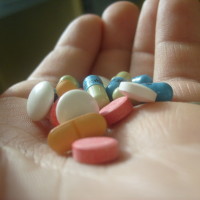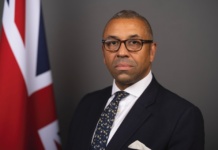‘Treat all’ regime can yield $15 per dollar spent – WHO

The World Health Organisation (WHO) has revised its HIV guidelines to recommend that anyone who tests positive for the virus that causes AIDS should be treated immediately.
The UN health agency’s previous recommendation suggested doctors should wait to treat people with HIV until their immune systems suggested they were getting sick.
In a statement on Wednesday, WHO said the new recommendations are based on recent trials that have found early treatment “keeps people with HIV alive, healthier and reduces the risk of transmitting the virus.”
The new guidelines are a central plank of the United Nations agency’s aim to end the AIDS epidemic by 2030.
“Everybody living with HIV has the right to life-saving treatment. The new guidelines are a very important step towards ensuring that all people living with HIV have immediate access to anti-retroviral treatment,” said Michel Sidibe, executive director of UNAIDS, who added: “According to UNAIDS estimates, expanding ART [antiretroviral treatment] to all people living with HIV and expanding prevention choices can help avert 21 million AIDS-related deaths and 28 million new infections by 2030.”
The new guidance means that all 37 million people with HIV globally should be offered immediate treatment, a prospect that may be unrealistic in poor countries where many patients are still unable to get medicines. Last year, only about 15 million people with HIV were being treated.
Medical humanitarian organisation Médecins Sans Frontières (MSF) applauded the new guidelines but warned that turning this new recommendation into reality would require dramatically increased support from donors and governments.
Dr. Tom Ellman, director of MSF’s Southern Africa Medical Unit, said: “Test and treat can turn the tide on HIV, but to work as a tool to control the epidemic will require drastic changes and greatly increased investment.
“HIV care has to move out of clinics and into the communities with mobilized, empowered and engaged people living with HIV that actually are part of the response. This will need effort and money.
“At the United Nations last week world leaders agreed to a Sustainable Development Goal to make AIDS history within fifteen years, but they are going to need to show that they’re serious about it. Nobody’s going to end AIDS with business as usual.”
The Global Fund to Fight AIDS, TB and Malaria will hold its replenishment conference next year, which will be the first test of donors’ commitment to using the best science to treat all people living with HIV and further decrease the rates of HIV transmission worldwide.
MSF says experience from its HIV programmes shows that over the last ten years, one third of people who were diagnosed with HIV, but not eligible to start treatment, never returned to the health facility. Offering such individuals treatment once they test positive could substantially reduce the number of people who may never return.
Dr Marc Biot, MSF’s operational coordinator for HIV, says: “In order to reach as many people as possible, as soon as possible, simplified models of care and self-management strategies are needed that allow people to take more control over their own treatment and care.
“It’s no longer only a question of when to start people on treatment, but also how to help people stay on treatment for life and to maintain ‘undetectable’ levels of virus in their blood. We need to make sure HIV treatment fits into people’s lives better, just like with any other chronic disease in industrialised countries.”
The World Health Organisation estimates that by 2020 low- and lower-middle income countries will need $18.4 billion annually for the expanded HIV fight. However, fast-tracking the response should yield economic returns of $15 per dollar invested, based on improved health and infections averted.
Since it began spreading 30 years ago, AIDS has killed around 40 million people worldwide.










